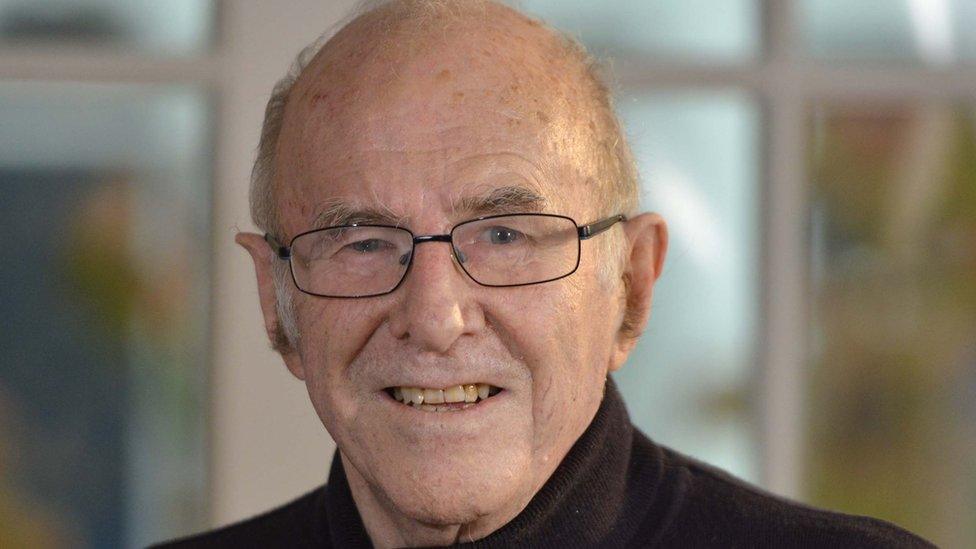Clive James obituary: 'A man of substance'
- Published
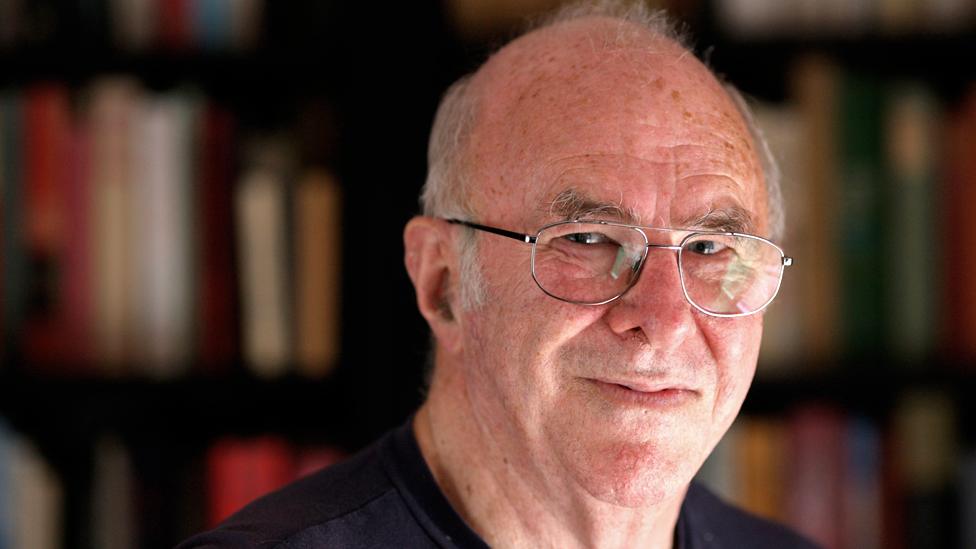
Broadcaster, critic, poet, TV presenter and prolific author - Clive James cheerfully criss-crossed the boundaries between high and lowbrow.
He was as much at home hosting a Shakespeare documentary as he was at fronting a programme showing people suffering indignities on Japanese TV.
His sardonic tones graced a host of TV documentaries in which he brought his own acute observations to bear on a wide variety of subjects.
A journalist on The Sydney Morning Herald once wrote: "His gift and lasting contribution has been to recognise that mass appeal does not translate into lack of substance."
He was born Vivian James in Kogarah, south of Sydney, on 7 Oct 1939. He was later allowed to change his name when, according to his autobiography, Vivien Leigh's appearance in Gone With the Wind meant the name would forever be seen as female, no matter what the spelling.
His father was captured by the Japanese during World War Two and forced to work as a slave labourer. He managed to survive internment but was killed when the plane returning him to Australia crashed in Taiwan.
The young James studied psychology at the University of Sydney, where he also edited the student magazine and directed a number of revues. After graduating, he went to work as a journalist on the Sydney Morning Herald.
In 1961 he set off for England, where for three years he led what he described as a "would-be bohemian existence" in London, working at a variety of jobs before gaining a place at Pembroke College, Cambridge, where Germaine Greer was among his contemporaries.
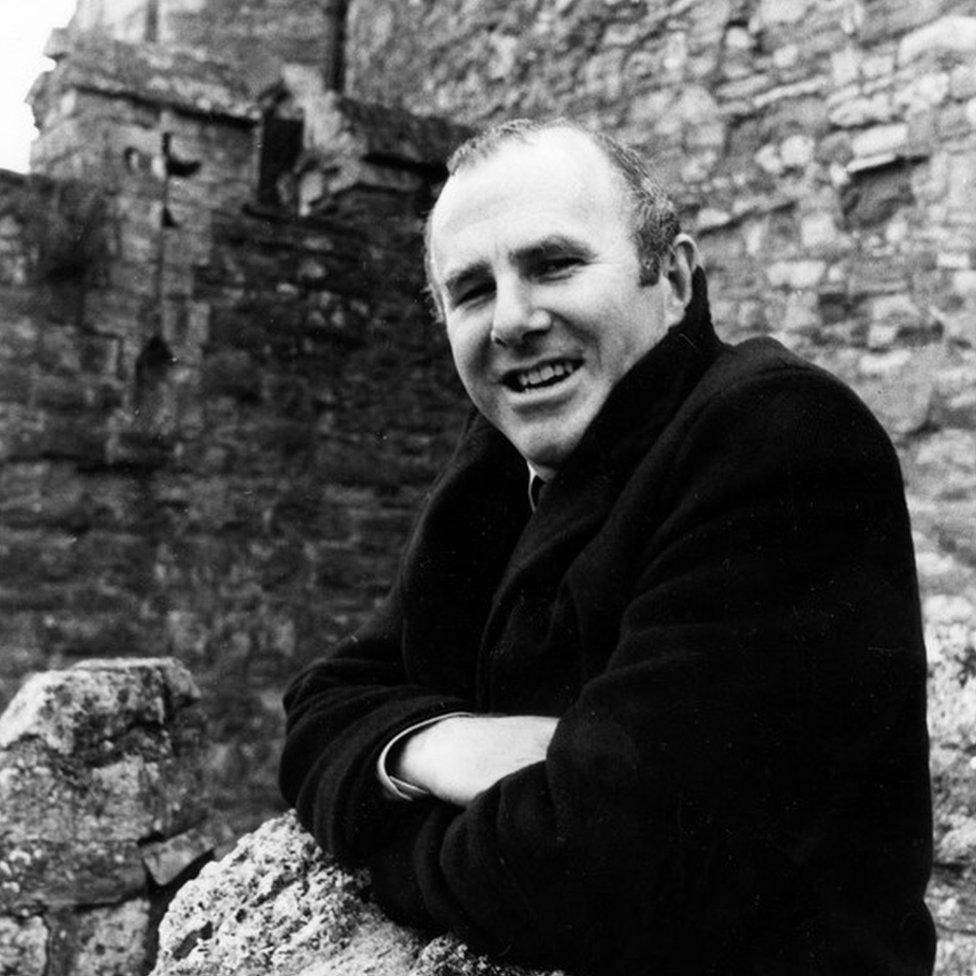
Clive James presented a BBC perspective on Shakespeare in 1980
He later confessed that he read very little of the course material, but did busy himself by writing for various periodicals, including The Listener and the Cambridge Review. He became president of the Cambridge Footlights, and represented Pembroke on University Challenge.
In 1972 he was commissioned by the Times Literary Supplement to write an appreciation of the noted writer and critic Edmund Wilson. His piece, published without a byline as was traditional at the TLS at the time, triggered a wave of speculation as to who had actually written it, and cemented James's reputation.
He began a 10-year spell as a TV critic on The Observer, delivering a column that his fellow critic, Mark Lawson, once described as so funny it was dangerous to read while holding a hot drink.
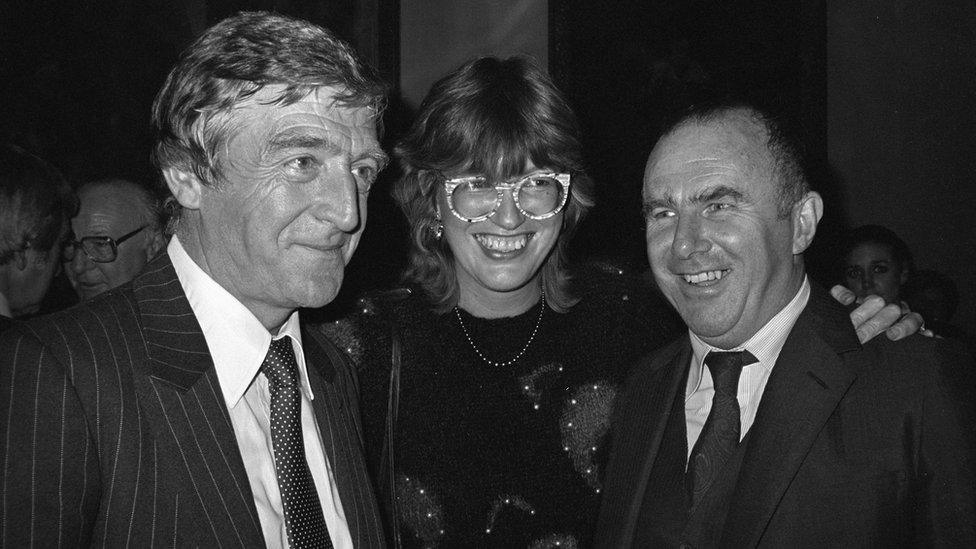
James with Michael Parkinson and Janet Street Porter in 1982
His strength was to write about the most banal television programmes in a high literary style, and he would often mix a critique of a serious documentary with comments on something more downmarket. His style would be widely copied by subsequent columnists.
His job as a TV critic led to him being asked to make guest appearances on various programmes. One notable episode was on the Granada pop music programme So It Goes, when he found himself trying to keep a new band, The Sex Pistols, under control.
"One had grown used to pop performers dressing up in silly clothes and pretending to be horrible," he wrote in his column. "But here were performers dressing up in silly clothes who really were horrible."
In 1982, ITV hired him to front a new show called Clive James on Television, which showed a series of amusing and offbeat TV clips from around the world.
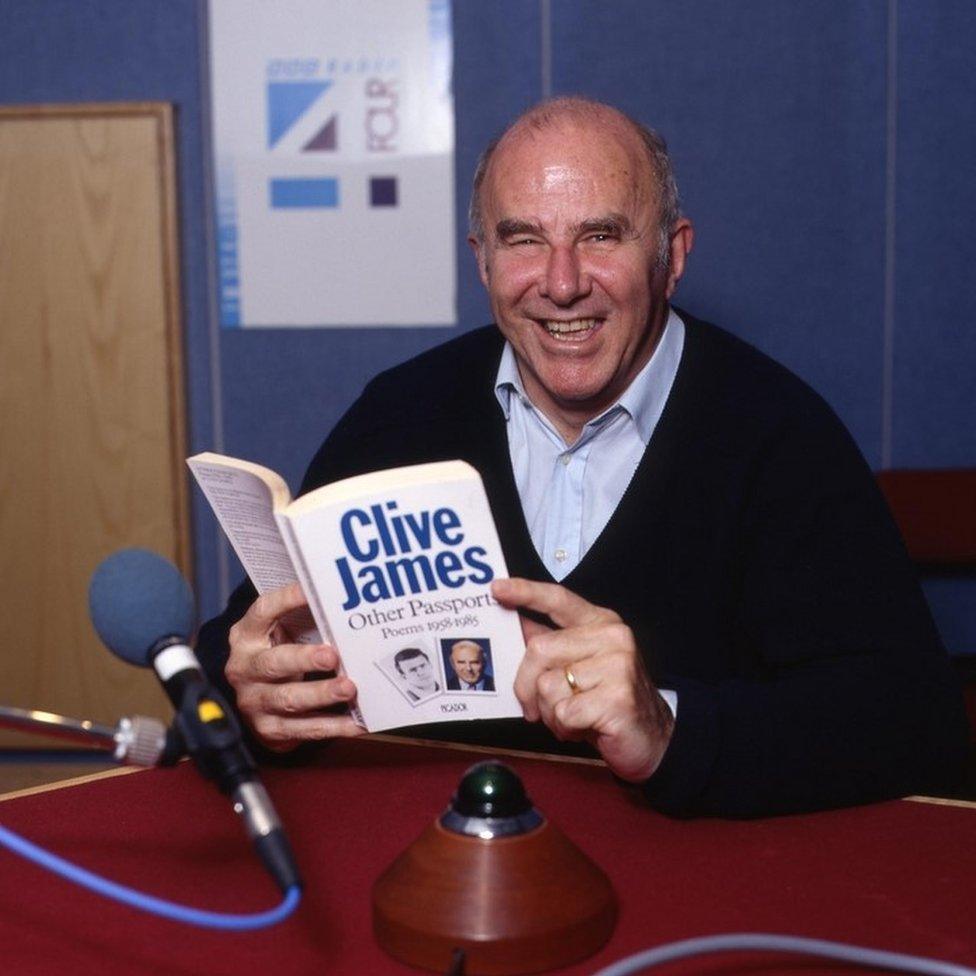
He was a prolific poet and author
Excerpts from the Japanese programme, Endurance, became a regular feature. Contestants had to withstand unpleasant experiences such as being lowered into a tank full of insects, or being buried up to their necks in sand.
James denied suggestions that he was being racist for highlighting a Japanese programme, explaining that he felt it was better that, if people were going to torment each other, they did it within the confines of a game show.
He also fronted a travel programme, which transferred to the BBC in 1989 under the title Clive James's Postcard From.
In 1993 the BBC broadcast his eight-part documentary series, Fame In The Twentieth Century, which used archive material to explore the nature of fame through each of the previous eight decades. The programme was also aired by ABC in Australia and PBS in the US.
Terminus
He was a regular voice on BBC Radio 4, and in 2008 he performed two one-man shows at the Edinburgh Comedy Festival.
He also worked with songwriter and producer Pete Atkin on six musical albums during the 1970s, which were re-released on CD 20 years later, when the pair made a number of live performances.
His television work did not distract him from writing. As well as publishing collections of poetry, he wrote four novels and five volumes of autobiography - the first of which, Unreliable Memoirs, was reprinted more than 60 times. He also published collections of his numerous essays and newspaper articles.
In 1997 he penned a poignant piece for the New Yorker titled I Wish I'd Never Met Her, describing his reactions to the death of his friend, Diana, Princess of Wales.
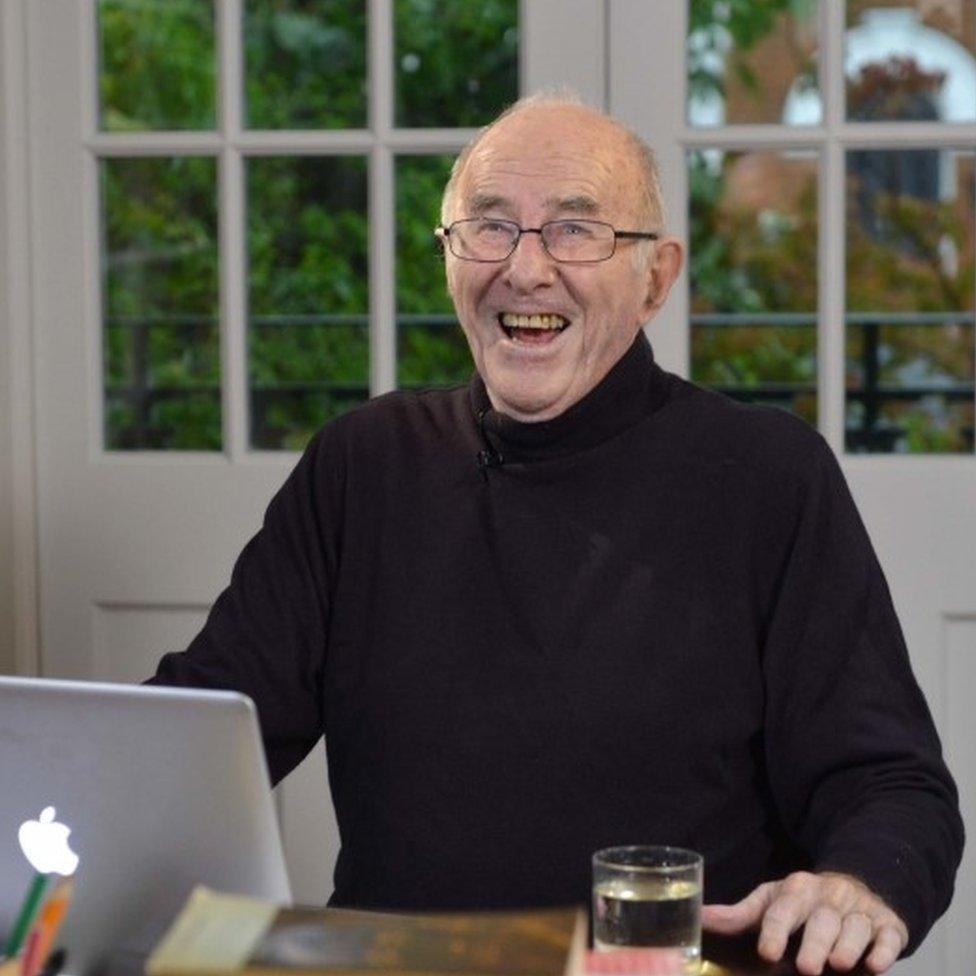
His illness failed to dampen his natural good humour
He made a number of appearances on the BBC's Question Time and also appeared alongside Paul Merton on the satirical quiz Have I Got News For You.
A lifetime of smoking and drinking culminated in a diagnosis of emphysema and kidney failure in 2010, and a year later he announced he had leukaemia.
In a 2012 interview, he told BBC radio he was "near the end", saying: "I don't want to cast a gloom, an air of doom, over the programme but I'm a man who is approaching his terminus."
Three years later, in an interview with the Guardian, he spoke of his "embarrassment" at still being alive, saying a new drug had kept the end at bay.
This February, he had a long and ultimately unsuccessful operation to remove a cancer on his cheek, which left him frail and almost blind.
An atheist by conviction, James famously described religion as "an advertising agency for a product that does not exist."
He was sanguine about his own end, maintaining a short biography on his website, which he hoped would be used as the basis for any appreciation of his life that might be written.
Journalists writing an obituary should "keep in mind that shorter is better, and that a single line is best", it said.
His life was much too full to fulfil that final wish.
- Published27 November 2019
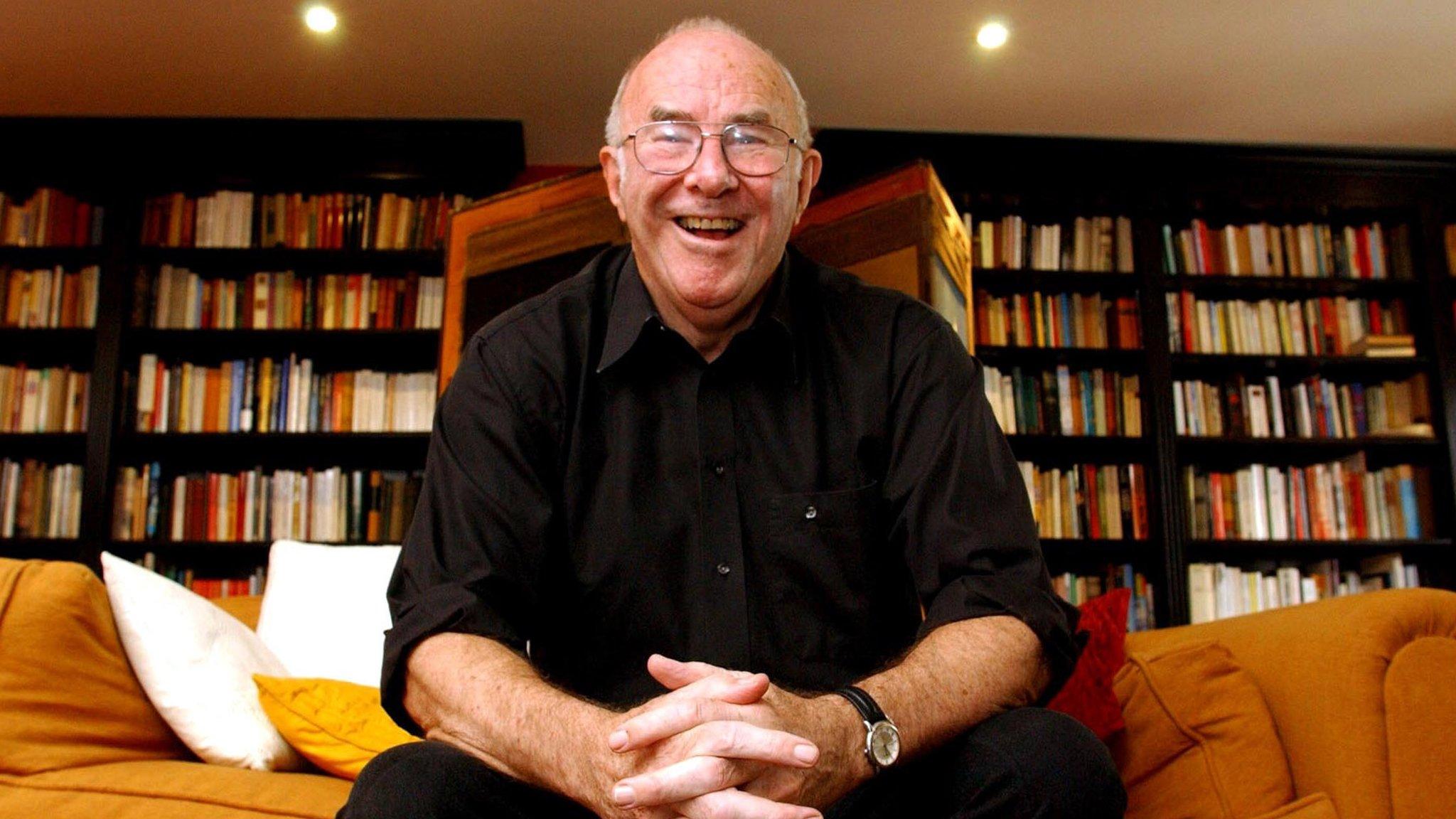
- Published27 November 2019
